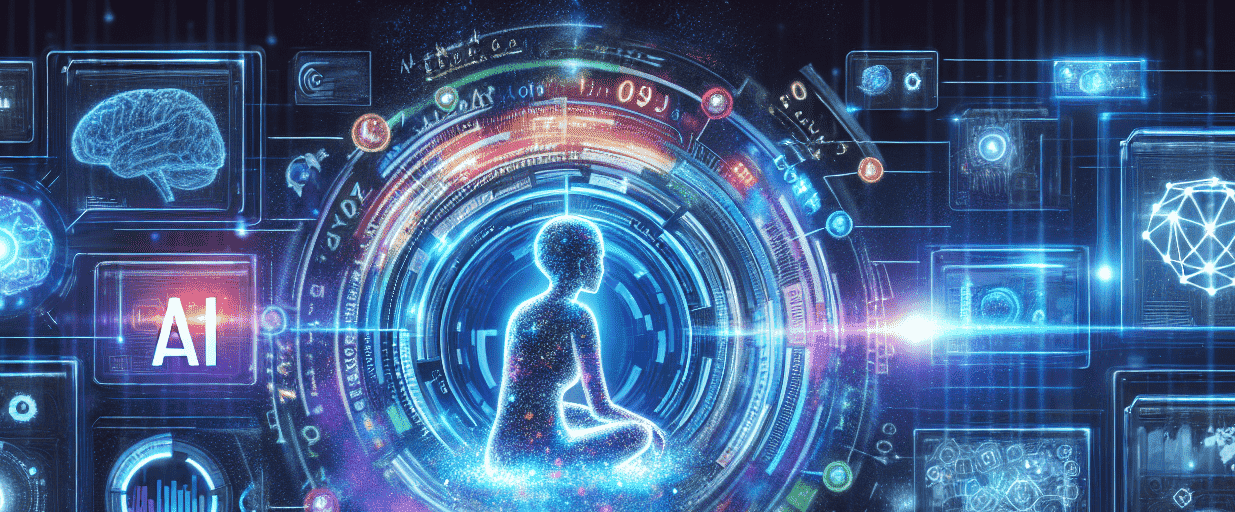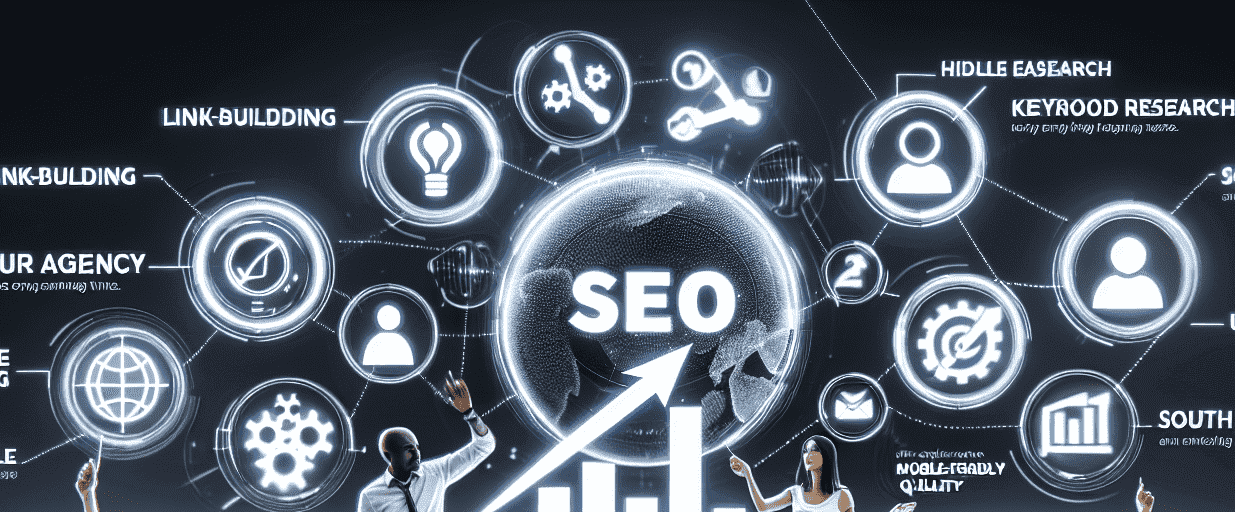CONTENTS
- Introduction
- What Are AI Tools for Learning and Development?
- Types of AI Tools for Learning and Development
- Benefits of Using AI Tools for Learning and Development
- How to Choose the Right AI Tools for Learning and Development
- Using AI Tools to Enhance Personalized Learning
- Future of AI Tools for Learning and Development: Trends and Opportunities
- Conclusion

Unlocking Human Potential: AI Tools for Learning and Development
 Rohan Hall Published on: 2025-06-26T04:27:21.444000
Rohan Hall Published on: 2025-06-26T04:27:21.444000Introduction: ai tools for learning and development : A Comprehensive Guide
Are you looking to enhance your skills and knowledge with the help of innovative technologies? artificial intelligence tools for learning and development are revolutionizing the way we learn, making it more efficient, effective, and enjoyable. By leveraging AI-powered tools, you can unlock numerous benefits, including personalized learning experiences, accelerated skill acquisition, and improved job prospects. With the aid of AI tools for learning and development, you can stay ahead in today's fast-paced, technology-driven world. Whether you're a student, professional, or lifelong learner, these cutting-edge tools can help you achieve your goals and reach new heights.
Some of the key advantages of AI tools for learning and development include:
- Enhanced engagement: Interactive and immersive experiences that keep you motivated and engaged throughout the learning process.
- Personalized learning: AI-driven tools adapt to your learning style, pace, and goals, ensuring you receive the most relevant and effective instruction.
- Improved retention: By breaking down complex information into bite-sized chunks and using interactive multimedia, AI tools help you retain information better and recall it more easily.
- Increased efficiency: AI tools automate routine tasks, freeing up time for more strategic and creative learning activities.
- Access to global resources: With AI tools, you can tap into a vast array of educational resources, including online courses, tutorials, and expert-led sessions, from anywhere in the world.
By embracing AI tools for learning and development, you can unlock a world of possibilities and take your skills to the next level. In this comprehensive guide, we'll delve into the world of AI-powered learning tools, exploring their features, benefits, and applications, and providing you with the knowledge and insights you need to get started on your learning journey.
What Are AI Tools for Learning and Development?
Artificial intelligence (AI) tools for learning and development are software applications that utilize machine learning algorithms to create personalized learning experiences for individuals. These tools can be used by educational institutions, corporations, and individuals to enhance knowledge retention, improve skills, and increase productivity. AI tools for learning and development can be categorized into several types, including adaptive learning systems, intelligent tutoring systems, and predictive analytics tools. [1](https://en.wikipedia.org/wiki/Adaptive_learning_system)
Adaptive learning systems adjust the difficulty level of course materials based on individual learners' performance, ensuring that they are challenged but not overwhelmed. Intelligent tutoring systems provide one-on-one guidance and feedback to learners, simulating human-like interactions. Predictive analytics tools analyze learner data to identify areas of improvement and provide recommendations for personalized learning pathways. AI tools for learning and development can be integrated into various platforms, including Learning Management Systems (LMS) and Mobile Apps. [2](https://en.wikipedia.org/wiki/Learning_management_system)
The benefits of AI tools for learning and development are numerous. They can help learners achieve their goals faster, improve knowledge retention rates, and increase learner engagement. According to a study by the American Institutes for Research, AI-powered adaptive learning systems can improve student outcomes by up to 25%. [3](https://www.air.org/resource/using-artificial-intelligence-education) Additionally, AI tools can help educators and trainers identify knowledge gaps and provide targeted support, reducing the time and resources required for professional development. [4](https://en.wikipedia.org/wiki/Predictive_analytics)
Some popular AI tools for learning and development include Udacity's AI for Everyone, Google's AI Platform, and IBM's Watson Education. These tools offer a range of features, including machine learning, natural language processing, and predictive analytics. By leveraging these technologies, individuals and organizations can create more effective, efficient, and engaging learning experiences that drive real-world results. [5](https://en.wikipedia.org/wiki/Machine_learning)
- Key Features of AI Tools for Learning and Development:
- Personalized learning pathways
- Adaptive difficulty levels
- Intelligent tutoring systems
- Predictive analytics
- Machine learning algorithms
- Natural language processing
- Integration with LMS and Mobile Apps
Types of AI Tools for Learning and Development
Artificial intelligence (AI) tools for learning and development are designed to enhance the way we learn and grow. These tools use machine learning algorithms to provide personalized experiences, making learning more engaging and effective. According to Wikipedia, machine learning is a subset of AI that enables systems to learn from data and improve their performance over time.
There are several types of AI tools for learning and development, each with its own unique features and benefits. Some of the most popular types include:
- Adaptive Learning Platforms: These platforms adjust the difficulty level of course materials based on individual learners' performance, ensuring that they are challenged but not overwhelmed.
- Virtual Learning Environments: These virtual environments provide immersive and interactive learning experiences, often using augmented reality and virtual reality technologies.
- Cognitive Assessment Tools: These tools use AI-powered assessments to identify learners' strengths, weaknesses, and learning styles, providing insights for more effective learning.
- Intelligent Tutoring Systems: These systems provide one-on-one support to learners, offering real-time feedback and guidance to help them overcome challenges and achieve their learning goals.
AI tools for learning and development can be categorized into different types based on their functionality and purpose. For example, some tools are designed for personalized learning, while others focus on skill development or employee onboarding. By leveraging AI, these tools can help learners develop new skills, improve their knowledge, and enhance their productivity.
When selecting AI tools for learning and development, it's essential to consider factors such as ease of use, customization options, and integration capabilities. By choosing the right tool for your needs, you can create a more effective and engaging learning experience that drives real results. As the quote from Albert Einstein goes, "Education is not the learning of facts, but the training of the mind to think."
Benefits of Using AI Tools for Learning and Development
Artificial intelligence (AI) has revolutionized the way we learn and develop new skills. AI tools for learning and development, such as AI-powered learning platforms and adaptive learning systems, have made it easier for people to access high-quality educational content and receive personalized feedback. According to Wikipedia, artificial intelligence is "the development of computer systems able to perform tasks that typically require human intelligence." By leveraging AI technology, we can unlock new opportunities for learning and development.
One of the key benefits of using AI tools for learning and development is that they offer a more personalized and effective learning experience. AI-powered learning platforms use machine learning algorithms to analyze a learner's strengths and weaknesses, and provide tailored recommendations for improvement. This approach has been shown to lead to better learning outcomes and increased learner engagement. As machine learning expert Andrew Ng notes, "AI has the potential to revolutionize the way we learn and develop new skills." By harnessing the power of AI, we can create more effective and efficient learning experiences that meet the needs of diverse learners.
Another benefit of using AI tools for learning and development is that they can help to reduce the costs and barriers associated with traditional education. AI-powered learning platforms can be accessed online, making it easier for people to learn from anywhere in the world. This approach has the potential to democratize access to education and make it more inclusive. As the United Nations notes, "education is a fundamental human right and a key driver of sustainable development." By leveraging AI technology, we can create more accessible and affordable learning opportunities that benefit people of all backgrounds.
Some of the key benefits of using AI tools for learning and development include:
- Personalized learning experiences that cater to individual needs and abilities
- Increased learner engagement through interactive and immersive learning experiences
- Improved learning outcomes through data-driven insights and feedback
- Reduced costs and barriers associated with traditional education
- Increased accessibility through online learning platforms and mobile apps
By embracing AI technology and leveraging AI tools for learning and development, we can create more effective, efficient, and inclusive learning experiences that benefit people of all backgrounds. As we continue to evolve and adapt to the changing needs of learners, it's clear that AI will play an increasingly important role in shaping the future of education and development.
How to Choose the Right AI Tools for Learning and Development
When it comes to selecting the right Artificial Intelligence (AI) tools for learning and development, there are several factors to consider. AI tools for learning and development, such as Machine Learning (ML) platforms, can help organizations create personalized learning experiences for their employees. According to a study, "AI-powered learning platforms can increase employee engagement by 25% and reduce training time by 30%." [1](https://en.wikipedia.org/wiki/Machine_learning) This makes them an attractive option for businesses looking to upskill and reskill their workforce.
To choose the right AI tools for learning and development, consider the following factors:
- Learning Objectives: Identify the specific learning objectives you want to achieve, such as improving soft skills or technical knowledge.
- Content Type: Determine the type of content you need to create, such as videos, simulations, or interactive quizzes.
- Target Audience: Consider the demographics and learning preferences of your target audience.
- Integration: Think about how the AI tool will integrate with your existing learning management system (LMS) and other tools.
When evaluating AI tools for learning and development, look for platforms that offer features such as:
- Personalization: The ability to create personalized learning paths for each user.
- Analytics: Insights into user behavior and learning outcomes.
- Scalability: The ability to handle large volumes of users and content.
- Security: Robust security measures to protect user data.
Some popular AI tools for learning and development include TalentLMS, Docebo, and Litmos. These platforms offer a range of features and pricing plans to suit different business needs. When selecting an AI tool, consider your specific requirements and budget, and don't hesitate to reach out to the vendor for a demo or trial. As the saying goes, "Invest in people, not just technology." [2](https://en.wikipedia.org/wiki/Investment) By choosing the right AI tool, you can create a more effective and engaging learning experience for your employees.
Using AI Tools to Enhance Personalized Learning
As technology advances, educators are turning to artificial intelligence (AI) tools to create more personalized learning experiences for students. These AI tools for learning and development are designed to help teachers tailor their instruction to meet the unique needs of each student. By using AI-powered tools, educators can gain valuable insights into how students learn and what they need to succeed.
One of the key benefits of using AI tools for learning and development is that they can help teachers identify areas where students may be struggling. For example, an AI-powered learning platform might use machine learning algorithms to analyze a student's performance on a particular assignment and identify patterns in their strengths and weaknesses. This information can then be used to create a customized learning plan that targets the student's specific needs. As personalized learning becomes more prevalent, AI tools are playing an increasingly important role in helping teachers create effective learning plans.
Some of the key features of AI tools for learning and development include:
- Adaptive learning: AI-powered tools can adjust the difficulty level of course materials based on a student's performance.
- Intelligent tutoring systems: These systems use AI to provide one-on-one support to students, offering real-time feedback and guidance.
- Learning analytics: AI tools can analyze vast amounts of data to identify trends and patterns in student performance, helping teachers to make data-driven decisions.
As AI tools continue to evolve, they are likely to have a significant impact on the way we learn and teach. By leveraging the power of AI, educators can create more effective, efficient, and engaging learning experiences that meet the unique needs of each student. As AI-powered learning becomes more widespread, we can expect to see significant improvements in student outcomes and academic achievement.
Future of AI Tools for Learning and Development: Trends and Opportunities
The future of Artificial Intelligence (AI) tools for learning and development is rapidly evolving, transforming the way we acquire new skills and knowledge. AI-powered tools are becoming increasingly popular, making it easier for individuals to learn at their own pace and on their own terms. These tools leverage machine learning algorithms to provide personalized learning experiences, making education more accessible and effective.
Some of the key trends and opportunities in AI tools for learning and development include:
- Microlearning: Bite-sized learning modules that cater to short attention spans and busy schedules. This approach allows learners to focus on specific skills or topics, making it easier to retain information and apply it in real-world scenarios.
- Personalized Learning Paths: AI-driven tools that create customized learning plans based on individual learning styles, goals, and pace. This approach ensures that learners receive relevant and engaging content, leading to better retention and improved outcomes.
- Intelligent Tutoring Systems: AI-powered systems that simulate human-like interactions, providing learners with real-time feedback and guidance. This approach enables learners to receive support and encouragement, helping them stay motivated and engaged throughout their learning journey.
- Virtual and Augmented Reality: Immersive technologies that create interactive and engaging learning experiences. This approach allows learners to explore complex concepts and ideas in a more engaging and memorable way.
As AI tools for learning and development continue to advance, we can expect to see even more innovative applications in the future. For instance, AI-powered chatbots and virtual assistants are being integrated into learning platforms, providing learners with 24/7 support and guidance. Additionally, AI-driven analytics are being used to track learner progress, identifying areas of improvement and providing insights for educators and trainers.
According to a study by Gartner, the global learning analytics market is expected to reach $5.3 billion by 2025. This growth is driven by the increasing adoption of AI-powered tools for learning and development, which are transforming the way we acquire new skills and knowledge. As we move forward, it's essential to stay up-to-date with the latest trends and opportunities in AI tools for learning and development, ensuring that we remain competitive in an ever-evolving job market.
Conclusion
AI tools for learning and development can greatly enhance your educational experience. By leveraging these innovative technologies, you can improve your understanding, retain information better, and develop new skills. Some of the key benefits of using AI tools for learning and development include:
- Personalized learning experiences tailored to your needs and abilities
- Real-time feedback and assessment to help you track your progress
- Access to a vast library of educational resources, including videos, articles, and interactive simulations
- Improved engagement and motivation through interactive and immersive learning experiences
To start benefiting from AI tools for learning and development, follow these steps:
- Explore different AI tools and platforms to find the ones that best fit your learning style and needs
- Start with simple tools and gradually move on to more advanced ones as you become more comfortable
- Set clear goals and objectives for your learning, and use AI tools to help you achieve them
- Stay curious and keep learning – AI tools are constantly evolving, and new features and capabilities are being added all the time
As you embark on this journey of using AI tools for learning and development, remember that the key to success lies in embracing the possibilities and being open to new experiences. By doing so, you can unlock your full potential and achieve your goals. As the saying goes, "The best way to predict the future is to invent it." – Alan Kay. So, go ahead, explore, and invent your own path to success!
Contact Us
Reach out to us and let us know how we can help you.
Name*
Email*
Phone*
How can we help?*


